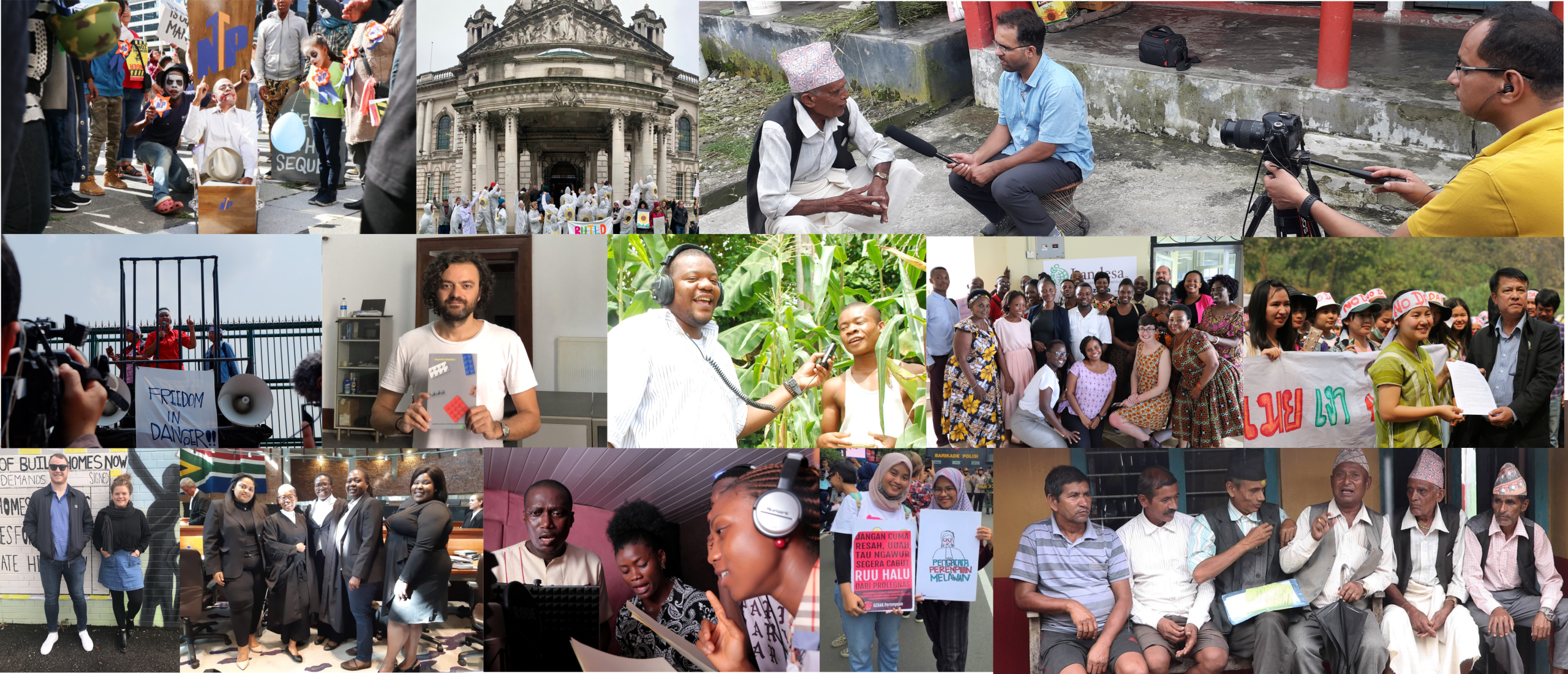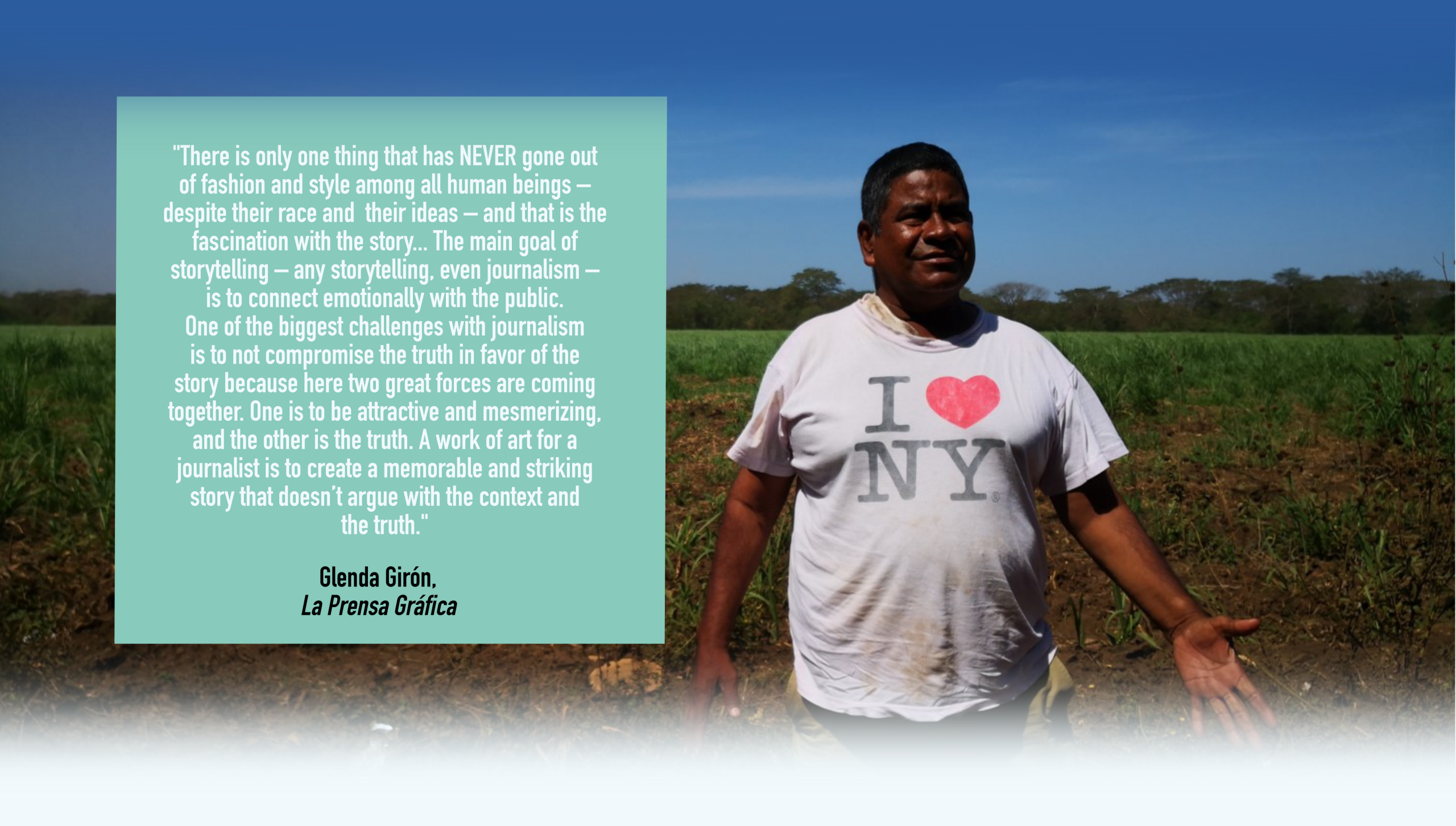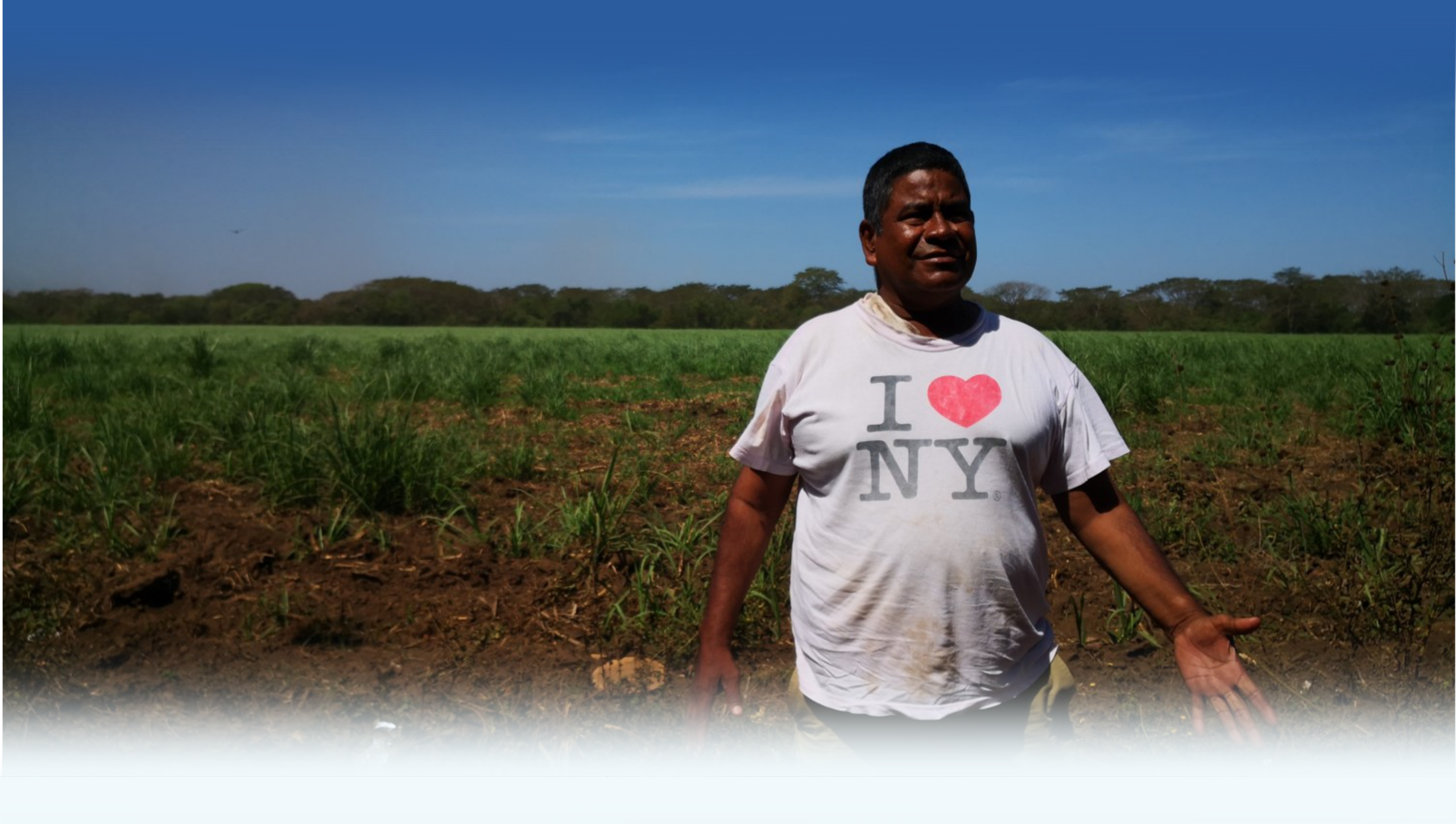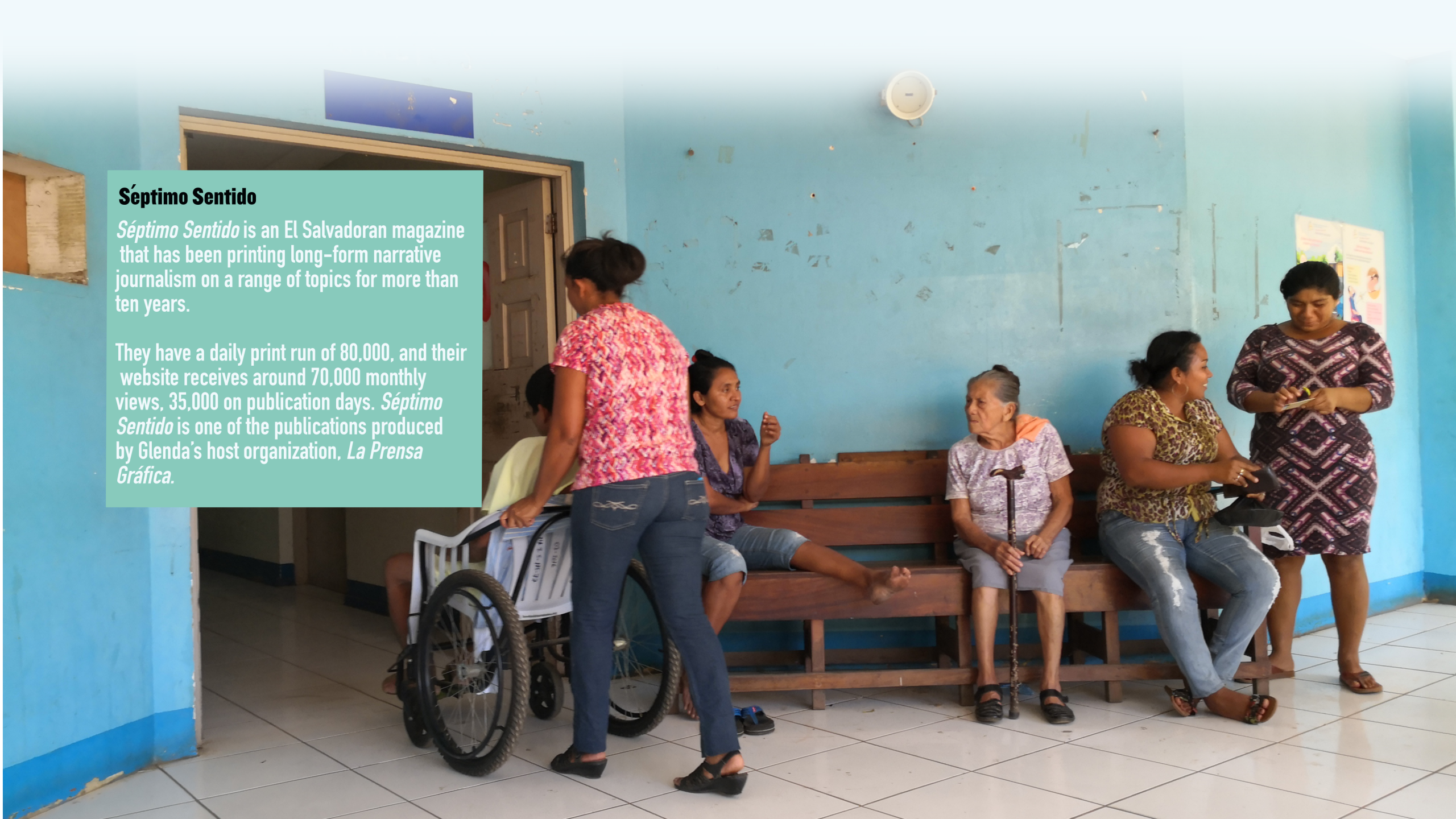Glenda Girón
El Salvador, Nicaragua,
Guatemala, Honduras and Costa Rica

Glenda Girón spent time teaching her co-Fellows strategies for making storytelling better by going beyond data to offer intimacy and make the political personal.
As an investigative journalist and editor from El Salvador, Glenda Girón used her Bertha Challenge Fellowship to investigate the shocking but underreported link between large-scale agricultural plantations in Central America, toxic fertilizers and epidemic levels of chronic kidney disease (CKD) among farmers and their families.
Glenda’s investigation took her into rural farmlands in El Salvador, Nicaragua, Guatemala, Honduras and Costa Rica. Chronic kidney disease is now the second most common cause of death among men in Nicaragua. Within the wider region, it is estimated to have caused over 20,000 premature deaths. Glenda has worked tirelessly to make these statistics public knowledge in the Central American countries affected. For her, that means going beyond the data to document and share the stories of individuals whose poverty and precarious access to housing has left them vulnerable to the disease. Glenda brings an intimacy and texture to the subject matter that is unique to her style of investigation and writing.
Bertha Challenge Fellows connect online in co-learning sessions to share their progress, discuss obstacles they face and exchange ideas with each other. When Glenda led her co-learning session, she took the opportunity to share why storytelling is so key to her work.

As an investigative journalist and editor from El Salvador, Glenda Girón used her Bertha Challenge Fellowship to investigate the shocking but underreported link between large-scale agricultural plantations in Central America, toxic fertilizers and epidemic levels of chronic kidney disease (CKD) among farmers and their families.
Glenda’s investigation took her into rural farmlands in El Salvador, Nicaragua, Guatemala, Honduras and Costa Rica. Chronic kidney disease is now the second most common cause of death among men in Nicaragua. Within the wider region, it is estimated to have caused over 20,000 premature deaths. Glenda has worked tirelessly to make these statistics public knowledge in the Central American countries affected. For her, that means going beyond the data to document and share the stories of individuals whose poverty and precarious access to housing has left them vulnerable to the disease. Glenda brings an intimacy and texture to the subject matter that is unique to her style of investigation and writing.
Bertha Challenge Fellows connect online in co-learning sessions to share their progress, discuss obstacles they face and exchange ideas with each other. When Glenda led her co-learning session, she took the opportunity to share why storytelling is so key to her work.
“There is only one thing that has NEVER gone out of fashion and style among all human beings – despite their race and their ideas – and that is the fascination with the story... The main goal of storytelling – any storytelling, even journalism – is to connect emotionally with the public. One of the biggest challenges with journalism is to not compromise the truth in favor of the story because here two great forces are coming together. One is to be attractive and mesmerizing, and the other is the truth. A work of art for a journalist is to create a memorable and striking story that doesn't argue with the context and the truth.”
Glenda Giron,. La Prensa Gráfica



Glenda shared with Fellows how even the strongest investigative journalistic piece of work would be lost on an audience if the voice of ordinary people is not clearly heard and made central to the work. Bertha Fellow Omar Radi, an investigative financial journalist based in Morocco, concluded that Glenda’s focus on people rather than on fact and evidence influenced his work in a profound way.
"She told us that to listen to people and make their voices heard in our work, rather than use their experience to extract facts, makes our journalism much more powerful."
Omar Radi,. Forum des Alternatives Maroc
Glenda’s skill for storytelling makes the political personal in an emotional way that leaves the reader with a profound sense of understanding of the social and political causes of Central America’s forgotten farmers. The stories she has published during this Bertha Challenge year have drawn wide attention to the spread of chronic kidney disease in Central America.
In the first month of publication, her series of articles was read by 70,000 people online, and her English articles have been shared 2,000 times on social media.

CREDITS
Photo 1: Pedro Amador (pictured) worked at a sugar mill until he had to stop because of kidney disease. Image: Glenda Girón Originally published by Séptimo Sentido.
Photo 2: Patients at a hospital in Chichigalpa, Nicaragua. Image: Glenda Girón Originally published by Séptimo Sentido.
Authors: The Bertha Challenge team
Editorial Consultant: Karen Frances Eng
This story was originally published in the Bertha Fellows book and some of the information in this story may have changed since it was first published.



 Built with Shorthand
Built with Shorthand